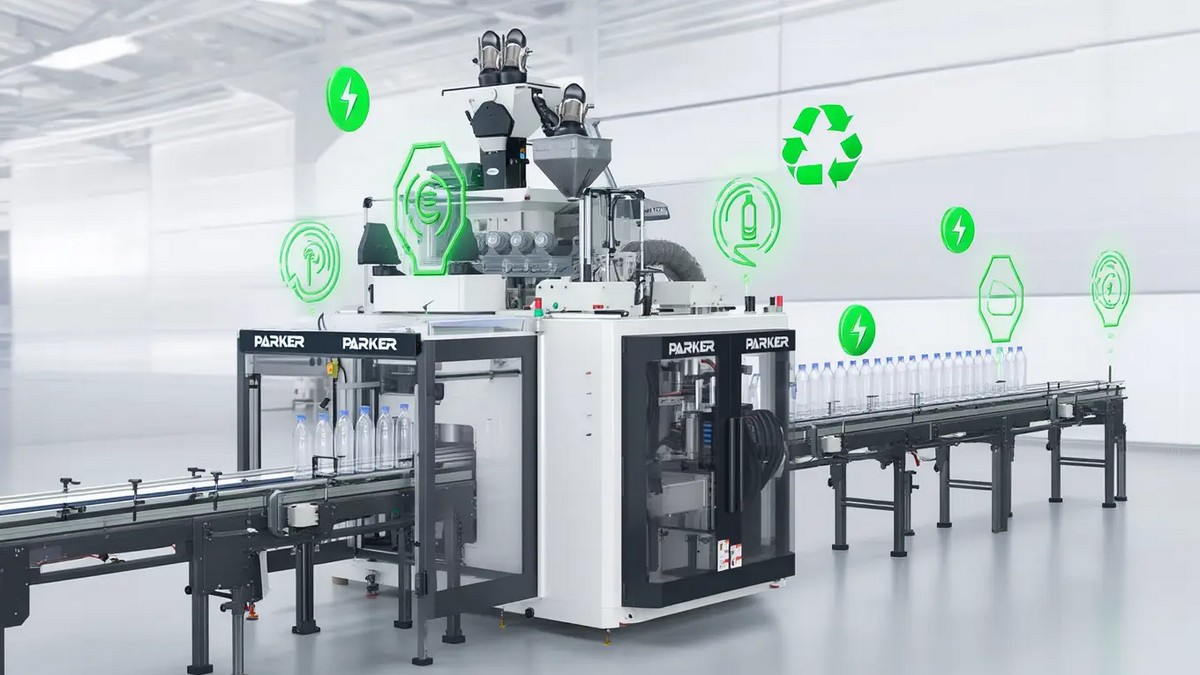Under the multiple influences of technology, sharing and global economic and trade reforms, the global bicycle industry has entered a critical moment of multiple flips. Taiwan's bicycle industry, which has always had a competitive advantage, is facing a severe challenge of how to maintain its advantages. The addition of new startups injects a stream of innovation and brings new opportunities for the rise of Taiwan's bicycle industry.
Taiwan is known as the "Bicycle Kingdom", and the image of the "Bicycle Island" created by the central government, local governments and industry is famous around the world. Coupled with the successful experience of Ubike bicycle rental service, Taiwan's bicycle industry has grown from a manufacturing industry. All advantages are showing: Taiwan's bicycle industry has a strong competitiveness in the global market.
However, the evolution of science and technology in recent years has brought disruptive innovation to the bicycle industry. The traditional bicycle industry can no longer be like the past, but simply pursue the lightweight of products. It is necessary to further integrate the new thinking of technology and innovative services, and bring out products that meet the needs of consumers. Only products and services can continue to win the favor of the market; what's more, the US-China trade war that started last year has had a big impact on Taiwan's bicycle industry, which used to be good at "R&D in Taiwan, production in China, and global marketing".
To meet the various challenges faced by the bicycle industry, Taiwanese manufacturers must take correct measures as soon as possible in order to break through and rebuild. Combining the various strategies of domestic and foreign experts, bicycle brand factories and bicycle startups, five keys for the upturn of Taiwan's bicycle industry can be summarized.
Key 1 "Electrification is Unstoppable"
Catering to the trend of energy saving and carbon reduction, the eBike, which is low pollution, simple to operate, saves effort and does not require a driver's license, has gradually become a new choice of means of transportation for human beings. More and more riders step on the eBike with power pedals and enjoy the riding life effortlessly, the eBike wave is emerging.
The eBike wave sweeps from Europe to the world. Hannes Neupert, executive director of EnergyBus e.V. in Germany, pointed out that the eBike is not a new concept. The first eBike appeared in the world as early as 1885. Philips of the Netherlands released the first eBike production model in 1932. After decades of development, in the mid-1990s Smart electric vehicles are on the market for the first time. In 2004, smart electric vehicles succeeded in the European Dutch market, and then gradually spread in the global market.
Hannes Neupert further took the transformation of the mobile phone industry as an example to emphasize that, just as the wave of smartphones hit Nokia in the past, the advent of the eBike era is also bringing about great changes to the entire bicycle. If you don't invest in the eBike market according to market changes, you may become the next Nokia.
Han Goes, management consultant of Q Square Consulting Company, pointed out that currently 55% of the world's population lives in cities, and it is expected to reach 75% by 2050. Based on the increasingly crowded cities, four-wheeled vehicles will no longer be the main source of urban population movement. Choice, coupled with the appeal for environmental protection, two-wheeled electric bicycles will become an important tool for urban population movement.
Taking the European market with the highest eBike penetration rate as an example, business opportunities in the German market are quite promising. According to data released by the German Two-Wheeler Industry Federation (Zweirad Industrie Verband, ZIV), a total of 720,000 electric bicycles were sold in Germany in 2017, and the total sales increased by 19%. 19% of sales, or roughly 1 in 5 bikes sold, is an e-bike. ZIV expects that the proportion of eBike sales will continue to grow in the next few years.
Taiwanese brands actively set up factories and R&D. As eBike spreads from Europe and the United States to the Asian market, the two major bicycle brands in Taiwan, such as Giant and Merida, have been actively developing eBike products in the past two years to attack the global market. For example, the giant group expanded its European footprint last year and invested 15 million euros to set up a new factory in Hungary. The purpose of the factory is not only to shorten the supply chain to get closer to the market, but also to produce the fast-growing electric bicycles in Europe.
The chairman of Giant Group said that Hungary is located in Central Europe, with an excellent geographical location and a complete transportation network. Giant products can be sold to Eastern Europe and inland Europe in the future. This is an important reason for Giant's decision to set up a new factory in Hungary. In general, Giant Hungary plant covers a total area of 22 hectares, and the total investment is expected to be 48 million euros. , the initial production capacity is planned to be 300,000 units, and the production products will mainly be bicycles and electric bicycles required by Europe.
In addition to setting up a new factory in Hungary, according to a report from Bike Europe, Giant’s manufacturing plant in Lelystad, the Netherlands, will also significantly increase the proportion of electric bicycles in the future, and even fully invest in the production of electric bicycles. In response to the fast-growing demand for electric bicycles in Europe.
Taiwan eBike exports increase year by year. Under the strengthened layout of Taiwanese bicycle brands in electric bicycles, Taiwan's eBike exports have increased year by year. According to the statistics from the Bureau of Statistics of the Ministry of Economic Affairs, my country’s eBikes are mainly exported to the European and American markets. In 2012, the export volume of eBikes was 16.66 million US dollars. Divided by exporting countries, the main export market is the Netherlands, accounting for 27.7%, followed by Germany with 19.8% and the United States with 15.5%.
If you look at the market by continent, the European tourism is booming, coupled with the increase in the number of silver-haired people, driving the demand for high-quality, lightweight and high-priced eBikes to continue to grow rapidly. Therefore, Taiwan's eBike exports to Europe currently account for 77.2% of the total. Taiwan's largest export market.
Statistics from the Ministry of Economic Affairs show that in 2017, the number of Taiwan eBikes exported to the EU was close to 130,000, an annual increase of 33.8%, the export value surged by 83%, and the average unit price increased by 37% annually, while Germany is the second largest country in my country's electric bicycle exports. As for Taiwan's exports to the Americas, the proportion is 18.1%, and the combined proportion of Europe and the United States is as high as 95.3%. It is worth noting that the Asian eBike market has taken off in recent years, and Taiwan's eBike exports to mainland China, Vietnam and other regions have continued to grow, and the follow-up business opportunities in the Asian market are still worth looking forward to.
Continuing the export strength in 2017, Taiwan's electric bicycle exports continued to increase last year. Huang Zhifang, chairman of the Foreign Trade Association, said that when bicycles have become a fashion for environmental protection, health and leisure, they have indirectly driven the export of electric bicycles. In the first three quarters of last year, Taiwan has exported 195,000 electric bicycles, an increase of 51% over the same period last year.
The Bicycle Export Industry Association stated that the global bicycle industry is facing many impacts, and the global new blue ocean "electric bicycle" has taken shape. Taiwan's technology has always been in the research and development and manufacturing of mid-to-high-end products. It must quickly respond to industrial changes. The trend of "electric bicycles" will not miss business opportunities.
Key 2 "Intelligence is More Upgraded"
At the same time as the electrification of bicycles, the introduction of intelligent elements is the key to attracting consumers. Zhang Huijuan believes that e-life is an unstoppable trend, and the development of bicycle products towards intelligence is also unstoppable. Huang Zhifang also pointed out that the Internet of Things, big data and digital life are changing the ecology of various industries and continue to change our lives. It is foreseeable that in the future, bicycles will not only be transportation or sports tools, but also the most convenient mobile monitoring in smart cities. Units can collect environmental information at any time, and even monitor traffic data. In response to the comprehensive transformation of the bicycle industry to the direction of intelligence, it is called for Taiwanese industries to innovate across borders, combine the soft power of the Internet of Things and smart applications, and develop products that are more in line with the smart market.
In fact, to cater to the wave of intelligence, there are many start-up companies in Taiwan that focus on the various needs of knights and carry out intelligent innovation. For example, "Qunli Technology", a smart car watch developer, aims to develop products with higher cost-effectiveness than international famous brands, aiming at the demand of bicycle users for car watches. In the future, it will focus on emerging markets such as Malaysia and Thailand to seize the business opportunities of smart car watches.
In addition, Yotai's newly developed high-speed electric bicycle-specific far and near lights, using professional optical technology, condense the far and near lights into a device with a diameter of less than 10 cm, and its products have passed the European high-standard E-MARK certification. During the EUROBIKE exhibition, the company successfully negotiated with many European buyers and was affirmed by well-known German electric car dealers.
Key 3 "Community Shares Innovation"
As the bicycle life is fully moving towards intelligence, riders hope to use the intelligent networking as a community sharing tool to enjoy a more different riding life, which also promotes the formation of a new situation of shared services in the bicycle industry. In addition to the Ride Life community platform created by the well-known brand manufacturer Giant, there are many start-ups developing bicycle smart products and solutions, and they have also innovated bicycle community sharing tools and platforms. For example, in order to increase customer stickiness, Qunli Technology actively invests resources to develop communities, integrates GPS watches, and allows riders to upload their riding knowledge and information to the community and share them with riders.
Another start-up company, "Black Hole Technology", imitates YouBike's shared thinking, focuses on campuses, communities and tourist attractions, and innovates and develops a regional B2B shared bicycle brand "Sherry Bicycle", creating a traffic activation and life value enhancement for the region. service experience. Later, it will further extend its tentacles to the tourism field, hoping to bring a better accommodation experience to hotels or scenic spots through bicycles, and to seize the business opportunities of touring bicycles. The new sports software "Peace Technology" has developed a group riding app and a bicycle platform Velodash. In addition to recording riding information, it can also make appointments, plan routes, and easily plan group riding trips. The location tracking on the app can be used when a rider gets lost. Instantly find the location to provide rescue, and also provide speed and ranking information, etc., making cycling more interesting, and innovative applications have successfully expanded into foreign markets. Huang Yanling, CEO of Peixi Technology, pointed out that the Velodash platform has thousands of cycling routes in Taiwan, Japan, the United States and Singapore, so it has been favored by the Singapore Sports Agency and selected as the Singapore National Day cycling app.
Key 4 "Customization to Meet the Market"
Electrification and intelligence depend on the injection of technology, but in order to satisfy consumers' personal awareness, focusing on the design and development of customized bicycle products is also the key for bicycle brands to win new market consumption patterns. In this regard, new bicycle companies in Taiwan have successively pursued the concept of "customization" and strived for a niche market.
Key 5 "Globalization Responds to The Impact"
In view of the intensified competition in the global bicycle industry and the impact of the US-China trade war on Taiwan's bicycle industry, in addition to product and service innovation, it is moving towards smart manufacturing and building a global supply chain support system that can be quickly adjusted. A key point that bicycle manufacturers cannot ignore.
In response to the drastic changes in global competition, Huge Group has actively carried out digital transformation in order to strengthen its global market presence. The giant group includes three major bicycle brands, GIANT, Liv and Momentum. Currently, it has 8 manufacturing bases in Taiwan, Kunshan, Tianjin, Chengdu, the Netherlands, and 14 sales subsidiaries in Asia, Europe, America and Australia. As the scale of global operations continues to expand, the original management system is no longer sufficient. Therefore, through cooperation with software giant SAP, the company has created a single digital platform that integrates production and sales information in various markets around the world. This platform breaks the past Information island problem, strengthen interconnection and cooperation between factories, through real-time information interconnection, can properly manage manufacturing and inventory, quickly assist enterprises in decision-making and expand potential market opportunities, there is a great hope to gradually realize the company's vision of moving towards Industry 4.0.
As early as the 1980s, giant companies began to introduce computerized systems on the production side, but in order to face the era of Industry 4.0, they are determined to embrace the changes in world trends, and hope to integrate production and operation information of multinational sites through a single digital platform for big data analysis. and forecast feedback, and make more effective decisions, establish brand differentiation advantages, and enhance global competitiveness by real-time management of inventory, improvement of production efficiency, and access to the most real-time business insights.
Undoubtedly, in the face of rapid changes in the global bicycle industry, Taiwanese manufacturers or new start-ups should master various issues of electrification, intelligence, sharing, customization and globalization in order to respond to challenges, transform and innovate, and make the industry has flipped and jumped, ushering in a new future.










.jpg)
.jpg)
.jpg)

